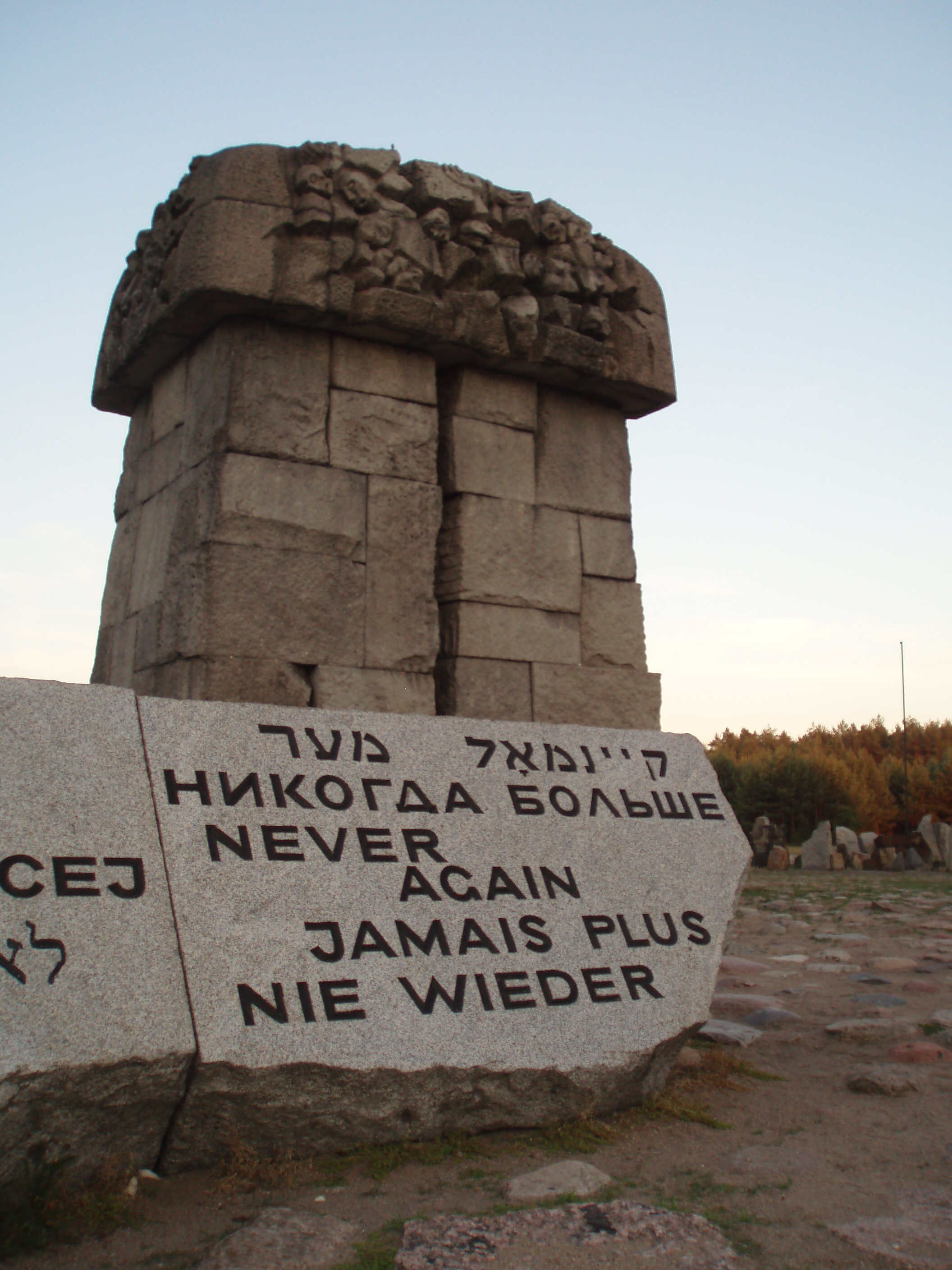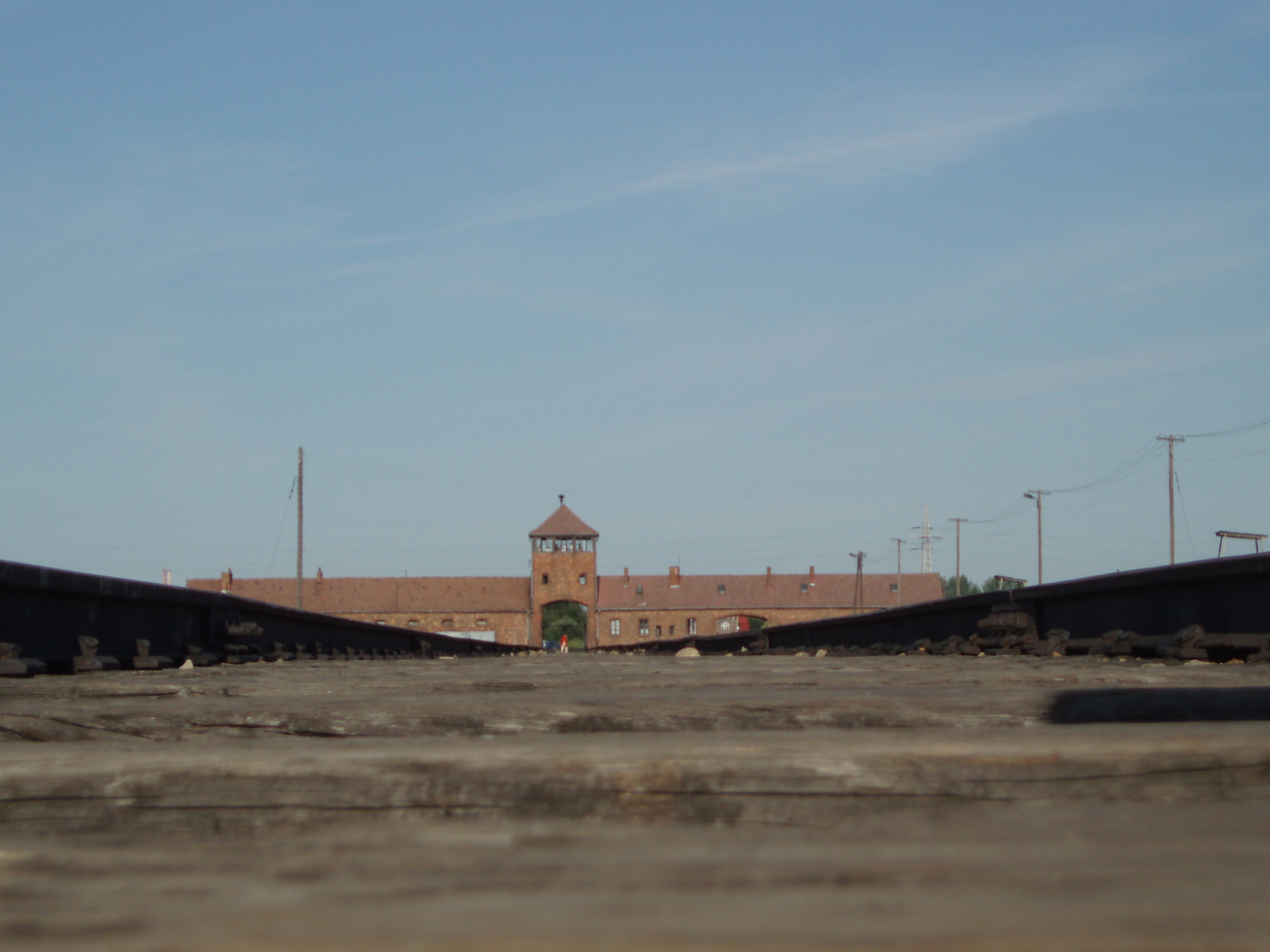Never again. Nie wieder.
July 21, 2006


I visited the sites of Treblinka and Auschwitz I and II. The historical facts speak for themselves. Just a few comments.
I’m satisfied (I originally wrote write “happy” but it’s not really an appropriate word for this post) that I sought out the Treblinka site, in addition to Auschwitz, despite the difficulties that I had finding it (more in another post). There was no “museum” or “exhibition” in Treblinka. Just a memorial that had less words but was more telling to me. I was alone in Treblinka at sunset (but still managed to get some photos); Auschwitz was overcrowded. Also I didn’t see both sites in Treblinka, just one as it was turning a bit late.
All the documentation around the camps states that persons under 14 years of age should not visit the sites. I tend to agree since it takes a certain level of awareness to fully understand what’s being displayed and position it in your own world view. I was thus disturbed to see much younger kids at the sites – if you go through them without the appropriate schooling in history lessons or such, it may actually have an effect that is opposite to the “desired” one.
I find it telling that while the Nazi camp history has been extensively conserved, published and shoved down many Europeans’ throats, no similar memorial sites, at least as far as I know, exist for the Gulag camps, where many people all over the Soviet empire perished. While they were not established explicitly for the purpose of genocide, the conditions were much more appalling and elements more harsh. As far as I know, some of them actually continue to be used as correctional facilities. And just today, I heard the news on the radio that some Lithuanian students who were about to visit some of the deportation sites in Russia were denied visas by the Russian authorities for reasons not stated.
It’s not “past” that remained “there”. It’s present here and now, if you look at what’s going on in the Middle East, Guantanamo, any of such conflict sites. The world hasn’t learned much from the atrocities, but it has learned some. At least we have the concept of “universal human rights” that’s sometimes referred to in such conflicts. The EU and UN continue to at least try to promote them and lead the humanitarian efforts in the conflicts.